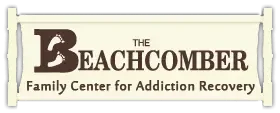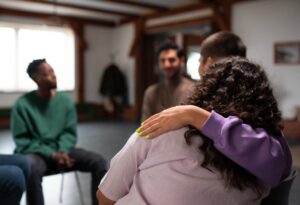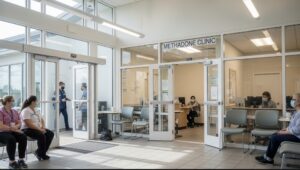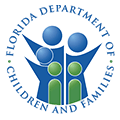For those who would want to stay at home during their treatment rather than live on campus, outpatient programming is offered. This gives someone the freedom to carry out their responsibilities as a parent and to stay active at work.
The most comprehensive outpatient treatment option is the partial hospitalization program (Now called: HIOP-High Intensity Outpatient Program) (PHP/HIOP). PHP/HIOP, often known as day treatment, provides a thorough therapeutic approach to help people recover from drug use disorders.
Next to a residential program, this type of outpatient treatment offers the highest grade of care due to the PHP’s extensive scope, which comprises 25–35 hours of weekly program participation.
What is PHP/HIOP?
Out of all the outpatient treatments, the PHP/HIOP is the most extensive. Daily engagement in a range of evidence-based therapies, classes, group sessions, and supplementary activities like yoga and art therapy are all part of these programs. Detox services may be offered by a PHP/HIOP via a nearby detox facility or an affiliated residential treatment facility.
A PHP/HIOP is frequently called a day program. This is due to the fact that almost all days of the week include scheduled therapeutic activities.
PHP/HIOP Therapy Components Consist of:
Psychotherapy on an individual basis. Recovery requires psychotherapy for two main reasons: The goals are twofold: 1) to break old thought patterns that have kept the person stuck in a cycle of maladaptive behaviors, and 2) to find underlying psychological problems that may have influenced the substance use, such as abuse, trauma, or a major life event. Among the evidence-based treatments are:
- Cognitive Behavioral Therapy
- Treatment for Dialectical Behavior (DBT)
- Management of Emergencies and Exposure Therapy
- Group therapy using Motivation Enhancement Therapy (MET).
The main component of outpatient treatment programs is group therapy. Among the various kinds of groupings are:
Under the supervision of a clinician, small groups where members are encouraged to share their own stories and challenges. Peer assistance is given by these groups as members connect via shared experiences.
Classes in psychosocial education provide a strong emphasis on the family and interpersonal aspects of healing. Stress management, conflict resolution, and effective communication are just a few of the recovery methods that are taught.
Family-focused groups facilitate communication, the mending of long-standing grudges, and the restoration of trust among family members. They will discover how to be supportive of their own needs while avoiding codependency and enabling behaviors.
Recovery Supported by Medication (MSR). Medication is used in MSRTM to support substance abuse recovery. These drugs can lessen the effects of opioids and help decrease cravings. To help long-term recovery, the drugs are administered in addition to psychotherapy and Twelve-Step program participation.
Various Outpatient Services
Programs for outpatient treatment provide a framework for escaping the shackles of substance abuse. Treatment plans, which typically span three to four months, consist of three tiers of intensity for therapies and activities. Among them are:
Program for Partial Hospitalization (PHP/HIOP). The best possible care is provided in an outpatient setting. Testing, Twelve-Step programs, psychosocial education, drug use education, medication-assisted recovery (MSR), group therapy, daily treatment, and supplementary activities.
A program for intensive outpatients (IOP). A comprehensive curriculum requires roughly nine hours of involvement every week. Psychotherapy, group therapy, psychosocial education, and Twelve-Step programming are some of the components of the program.
Fundamental Outpatient Care. After finishing an IOP or residential program, this is a step-down. It offers weekly classes, continuous counseling, and group sessions.
Programs for outpatient treatment are offered throughout a spectrum of care. Individuals will transition to an IOP and then basic outpatient treatment once they reach predetermined PHP/HIOP recovery benchmarks. The severity of the substance use disorder determines the initial level of outpatient care required.
Temporary Accommodations
The ability to live at home is one of the most alluring aspects of outpatient therapy; nonetheless, there are situations where a person’s recovery is hampered by their home environment. In such a situation, however, adaptability While it is still necessary to be able to go to work or pick up children from school, living in a sober living environment is one potential answer. Safe and supportive transitional housing is provided by the substance-free living space while the participant is participating in the outpatient program.
A variety of treatment alternatives are available through outpatient programs, including PHP/HIOP, IOP, and basic outpatient care. Choose the appropriate degree of care based on your individual needs after carefully weighing your options.
Conclusion
Beachcomber Center for Addiction Recovery has been recognized as a nationally renowned nonprofit leader in integrated, evidence-based treatment for substance use disorders. We provide holistic addiction treatment, drug detox, relapse prevention strategies, family wellness programs, inpatient and outpatient programs, and a range of other specially designed services per patient’s need. Our guiding philosophy affirms our commitment to meeting new difficulties and upholds our aim to rehabilitate each individual with dignity and respect. To obtain details about our all-inclusive plans, kindly contact us today for more information.






